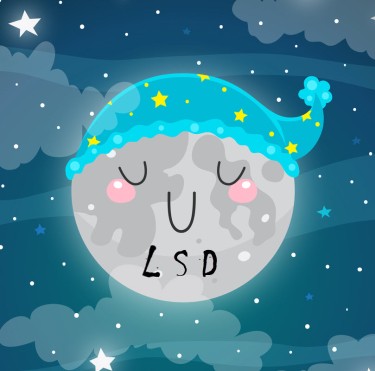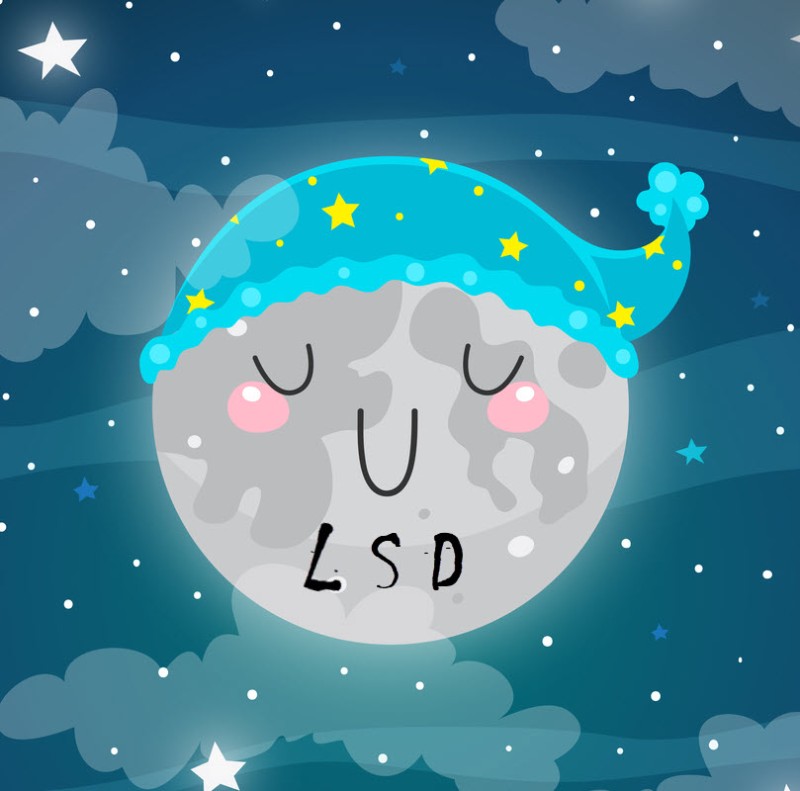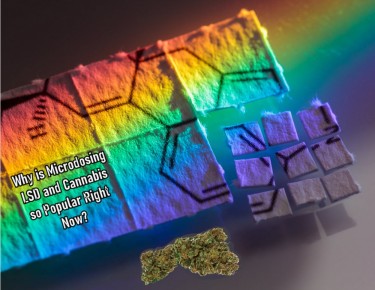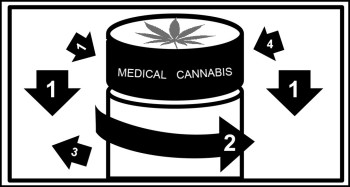
A groundbreaking study conducted by researchers from the University of Auckland in New Zealand has unveiled a potentially remarkable medical benefit of the mystical and potent hallucinogen lysergic acid diethylamide (LSD): its ability to enhance sleep. Titled "LSD Increases Sleep Duration the Night After Microdosing," the study was published on June 28.
The findings revealed a significant improvement in sleep patterns, albeit with a delayed effect that manifested the day after the initial LSD experience had subsided.
The researchers carefully followed a group of 80 healthy adult male volunteers for the study over a period of six weeks. Every third day, self-administered doses of either a 10 g microdose of LSD or a placebo were given to these volunteers. Due to the tolerance building up to LSD's effects, which normally last for two to three consecutive days as documented by MAPS, this dose regimen was consciously chosen.
The study concentrated on LSD microdoses, which are substantially smaller than the average recreational dose range of 50-250 g. Nonetheless, even at this lower dose, LSD had a more powerful effect than other hallucinogens.
Surprisingly, the researchers saw that the sleep patterns the next day had improved in a "clinically significant" way, including a rise in the amount of time spent in REM sleep. The most common stage of sleep, known as REM sleep, is when dreams typically take place.
Benefit of a Better Sleep Time
The researchers noted that participants who took a microdose of LSD the day before experienced significantly increased sleep duration compared to those in the placebo group. However, no differences in sleep were observed on the actual dosing day. The differences translated to an additional 8 minutes of REM sleep, 21 minutes of overall sleep time, and 24 minutes of total sleep time on the night following microdosing. Interestingly, participants in the LSD group went to bed earlier on the night after microdosing.
The study was authored by Nathan Allen, Aron Jeremiah, Robin Murphy, Rachael Sumner, Anna Forsyth, Nicholas Hoeh, David B Menkes, William Evans, Suresh Muthukumaraswamy, Frederick Sundram, and Partha Roop.
Furthermore, the authors highlighted that there were no differences in the distribution of sleep stages or physical activity between the LSD and placebo groups, nor any evidence of tolerance or altered sensation.
The researchers stressed the substantial implications of microdosing substances like LSD or psilocybin in the field of psychotherapy, delivered below the threshold for causing hallucinations. These consequences include improved mood and well-being, relief from anxiety and depression symptoms, and maybe increased creativity and productivity.
To monitor sleep duration throughout the study, a commercially available sleep/activity tracker was utilized. Analysis of sleep data from multiple nights demonstrated that participants in the LSD group slept an average of 24.3 minutes longer per night than those in the placebo group on the night following microdosing. No reductions in sleep were observed on the actual dosing day itself.
Implications for LSD in Medicine
The findings of this study reveal significant alterations in the physiological sleep requirements of healthy individuals who engage in microdosing. These findings have potential implications for the therapeutic effects of microdosing in mood disorders, specifically major depressive disorder, where sleep disturbances are commonly experienced. The objectively measured changes in sleep observed are distinct and clinically significant, making it difficult to attribute them to a mere placebo effect.
The authors acknowledged that previous microdosing studies have provided subjective reports regarding sleep quality. These studies have shown mixed results, with some participants reporting improvements in sleep while others experienced difficulties.
Furthermore, these findings are consistent with the positive sleep responses reported by MindBio Therapeutics earlier this month. Their study involved 80 participants in a clinical trial who were administered either a microdose of LSD or a placebo.
Additionally, in 2022, a New York-based biotech firm initiated a clinical trial to investigate the potential of LSD as a treatment for anxiety.
Unlocking LSD's Therapeutic Potential: Exploring Promising Effects
The study's results shed light on the intriguing therapeutic potential of LSD in the realm of medicine, particularly in addressing mood disorders and sleep disturbances. The significant changes observed in sleep patterns following microdosing suggest that LSD could offer valuable benefits for individuals struggling with conditions like major depressive disorder, where disrupted sleep is a common issue.
By extending sleep duration and enhancing REM sleep, LSD microdoses hold the promise of positively influencing mood and overall well-being. Given the crucial role of sleep in emotional regulation, the ability of LSD to improve sleep could potentially alleviate symptoms of depression and anxiety associated with these disorders.
Importantly, the objective measurements used in this study provide robust evidence beyond subjective reports, making it difficult to attribute the observed changes solely to a placebo effect. The clinically significant findings further reinforce the potential of LSD as a therapeutic agent.
These encouraging outcomes pave the way for continued research and exploration of LSD's therapeutic potential. Ongoing studies and clinical trials, including the notable work by MindBio Therapeutics, are actively investigating the broader applications of LSD in treating various mental health conditions.
As our knowledge of LSD expands, it creates new opportunities for cutting-edge therapeutic techniques. With its emphasis on sub-threshold doses that maximize benefits while limiting hallucinogenic effects, microdosing has potential for boosting innovation, productivity, and general mental health.
While more research is needed to completely understand the underlying processes of LSD's therapeutic effects, these findings lay a solid platform for future investigation. They underscore LSD's potential as a significant medical tool, providing hope to patients seeking alternative therapies for mood disorders and sleep-related issues.
Bottom Line
The groundbreaking study conducted by researchers from the University of Auckland provides compelling evidence for the potential of microdoses of LSD in enhancing sleep duration and improving sleep patterns, particularly in individuals with mood disorders. The significant objective measurements of increased sleep time and improved REM sleep bolster the case for LSD's therapeutic effects, surpassing placebo expectations. These findings offer new avenues for exploration and underscore the potential of LSD microdosing as a promising approach to alleviate sleep disturbances and enhance overall well-being in individuals grappling with mood disorders. Further research in this area holds great promise for advancing our understanding and utilization of LSD's therapeutic potential in the realm of mental health.






